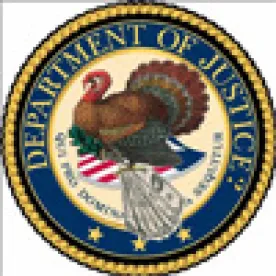WHAT HAPPENED
The Department of Justice Antitrust Division (DOJ) implemented new provisions in merger consent decrees that:
- Make it easier for DOJ to prove violations of a consent decree and hold parties in contempt;
- Allow DOJ to apply for an extension of the decree’s term if the court finds a violation; and
- Shift DOJ’s attorneys’ fees and costs for successful enforcement onto the parties.
DOJ has implemented these provisions in four decrees to date1 , and has communicated that it will require the same in future decrees.
WHAT THIS MEANS
For merger decrees, by reducing its burden of proof for decree violations, DOJ is shifting additional risk to parties for divestitures that do not go as planned. Willfulness is not a required element of civil contempt2, so the change to the burden of proof is significant. Parties will need to be sure to commit to realistic divestiture timelines and asset packages that will not present undue implementation challenges.
For non-merger decrees, settling parties will need to remain vigilant against decree violations or even the appearance of them, as the DOJ has ratcheted up its ability to obtain large settlements and civil penalties for violations.
THE CHANGES
The DOJ states that its changes are driven by the principle that antitrust enforcement is law enforcement, not regulation3. Nonetheless, the main impact of the changes is to increase the risk and potential cost on merging parties.
Preponderance Is Now Enough: Reversing the “clear and convincing evidence” standard that has been in place for civil contempt cases since at least the 1960s4, DOJ is now requiring settling parties to agree that a preponderance of the evidence will be enough for a showing of civil contempt and for an appropriate remedy. DOJ states that under the old standard, the DOJ frequently had to engage in extensive discovery when faced with a violation, giving the parties an incentive to hold out from a resolution and “exacerbate the situation.”5 Under a preponderance of the evidence standard, it will be easier for the DOJ to bring an enforcement action without conducting a full CID investigation.
Fee-Shifting Now the Norm: The DOJ now requires the shifting of fees and costs to the parties in the event a violation is proven. DOJ states that fee-shifting provisions are standard fare in many private contracts. Their use by DOJ is designed to discourage violations of consent decrees and speed resolution of disputes.
DOJ Can Request Extension of Decrees: Settling parties must now agree that in the event a court finds a violation, DOJ can request a one-time extension of the decree’s term. The extension that DOJ can request is not time-limited, and the new language does not set forth a standard for when the court should grant DOJ’s request. For decrees that involve costly monitoring and affirmative compliance, this open-ended provision may greatly raise the cost of disputing an alleged violation.
CONCLUSION
The DOJ’s new provisions shift risk and cost to settling parties in the event of a dispute over alleged violations of a decree. Merging parties may disagree about whether these changes further the administration’s deregulatory agenda. Nonetheless, the changes are here to stay, and parties are advised to proceed with appropriate caution in (1) agreeing to realistic divestiture timelines and asset packages and (2) implementing comprehensive decree compliance programs to avoid investigation for an actual or perceived violation.
- See Competitive Impact Statement, U.S. v Vulcan Materials Company (Dec. 22, 2017); Competitive Impact Statement, U.S. v TransDigm Group Incorporated(Dec. 21, 2017); Competitive Impact Statement, U.S. v Parker-Hannifin Corporation (Dec. 18, 2017); Plaintiff United States’ and Defendant ABI’s Joint Motion and Memorandum for Entry of Modified Proposed Final Judgment, U.S. v. Anheuser-Busch InBev SA/NV, 1:16-cv-01483 (Mar. 15, 2018).
- See McComb v. Jacksonville Paper Co., 336 U.S. 187 (1949).
- Principal Deputy Assistant Attorney General Andrew C. Finch, Remarks to New York State Bar Association Antitrust Section, Jan. 25, 2018, available at https://www.justice.gov/opa/speech/file/1028896/download
- See, e.g., Schauffler ex rel. NLRB v. Local 1291, International Longshoremen’s Assoc., 292 F.2d 182 (3rd Cir. 1961).
- Supra note ii.



 />i
/>i

